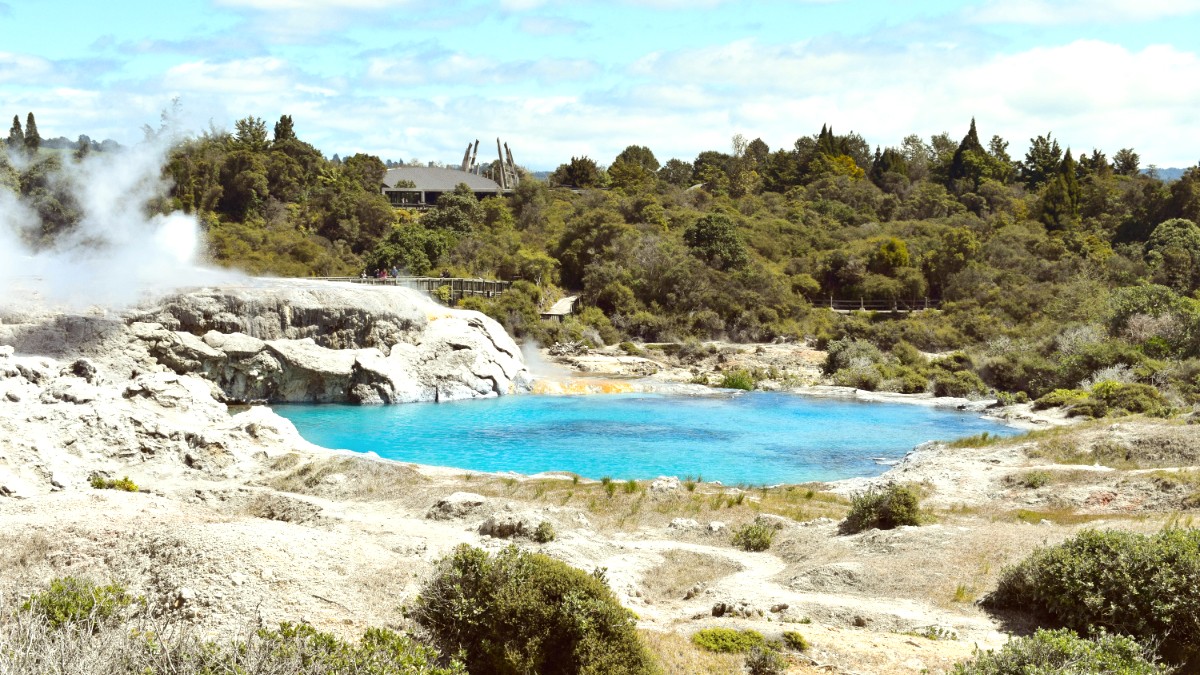
Rotorua And The Bay Of Plenty, New Zealand
New Zealand has three main mobile providers: Spark, Vodafone, and 2degrees. All hold good coverage in Rotorua and major towns and cities.
Wi-Fi is widely available in Rotorua. Most accommodations include free Wi-Fi.
When purchasing a local SIM card, pick a plan with sufficient data for navigation and messaging, as this often holds the best value.
Familiarity with local operating hours makes planning simple.
Retail Shops: Generally operate from 9:00 AM to 5:00 PM (Monday-Saturday) and 10:00 AM to 4:00 PM (Sunday). Larger malls or shopping complexes may hold extended evening hours.
Supermarkets: Typically open from early morning (around 7:00 AM) until late evening (9:00 PM or 10:00 PM), seven days a week.
Cafes: Open early in the morning for breakfast and coffee, generally closing in the late afternoon or early evening. Restaurants: Serve lunch from around 11:30 AM to 2:00 PM and dinner from 5:00 PM to 9:00 PM or 10:00 PM. Some establishments on Eat Street may stay open later.
Banks: Generally open from 9:00 AM to 4:30 PM (Monday-Friday). They are not open on weekends.
Public Holidays: Businesses may hold reduced hours or be closed entirely on public holidays, and public transport may operate on a Sunday schedule.
Always check specific opening hours for attractions you plan to visit, notably during off-peak seasons when hours might be reduced.
Cultural respect and local customs contribute to a pleasant experience.
A handshake is common when meeting someone new. Using "Kia Ora" (hello) is a widely accepted Māori greeting.
Hongi: The traditional Māori greeting contains pressing noses and foreheads together. This greeting is for formal Māori occasions or when invited. Do not initiate unless expressly invited.
Approach cultural experiences with an open mind and a willingness to learn for an enriching interaction.
Rotorua has made efforts to improve accessibility, but conditions vary.
Accessibility varies across the city and attractions. Newer infrastructure, like major attractions, modern hotels, and shopping centers, is generally accessible with ramps, lifts, and accessible restrooms.
Baybus: All public buses in Rotorua are low-floor and wheelchair accessible, with ramps for easy boarding.
Always confirm accessibility directly with attractions or accommodations before your visit to ensure they meet your specific needs.